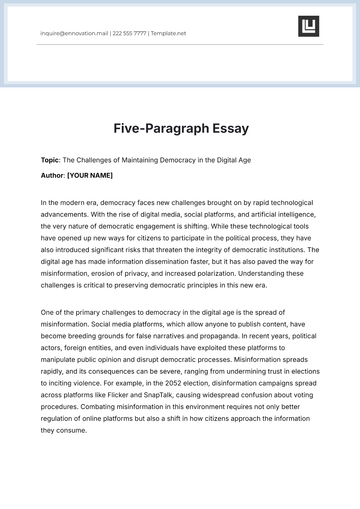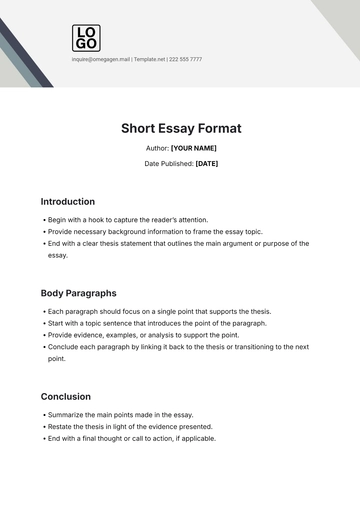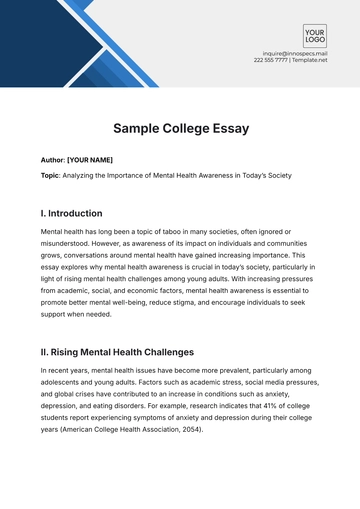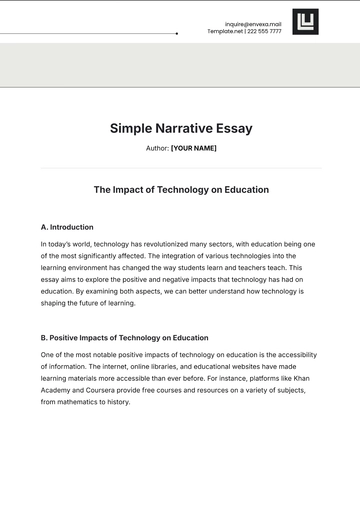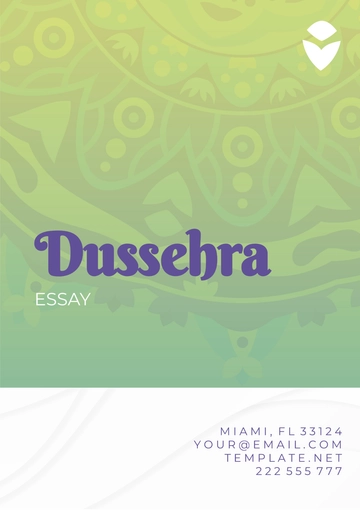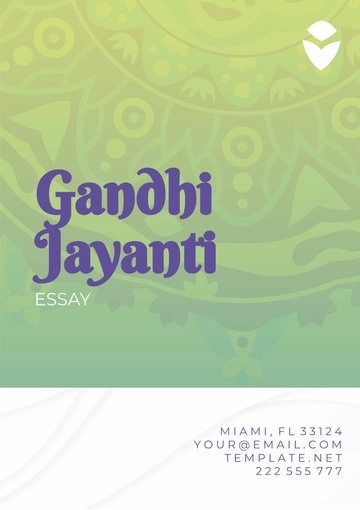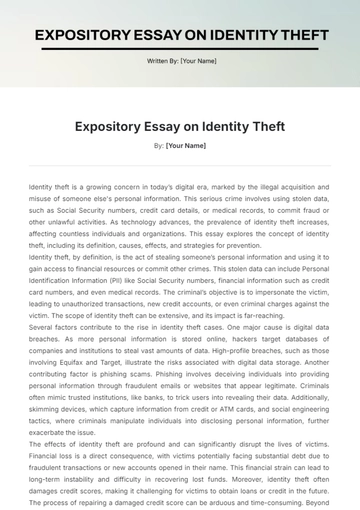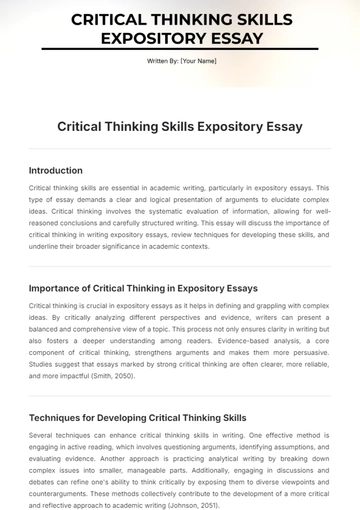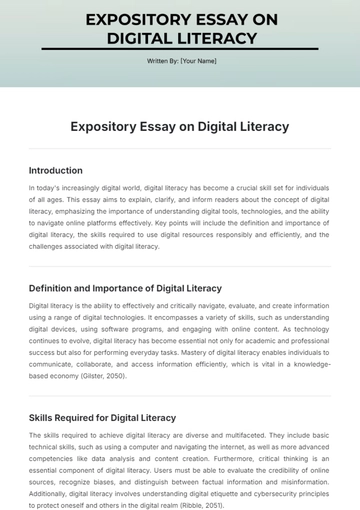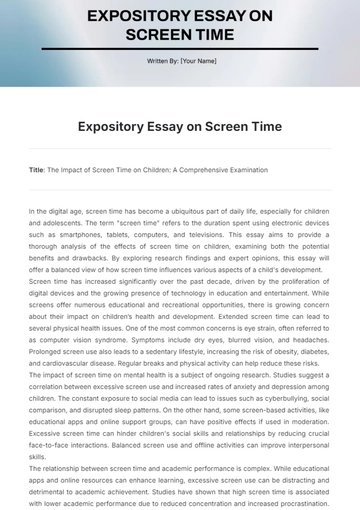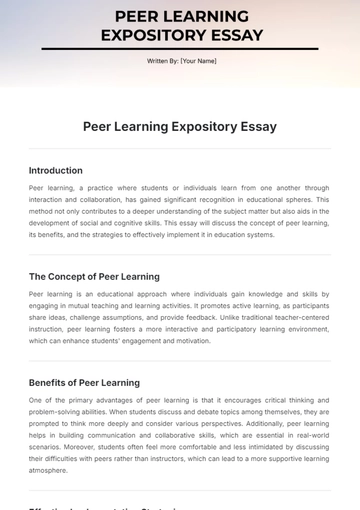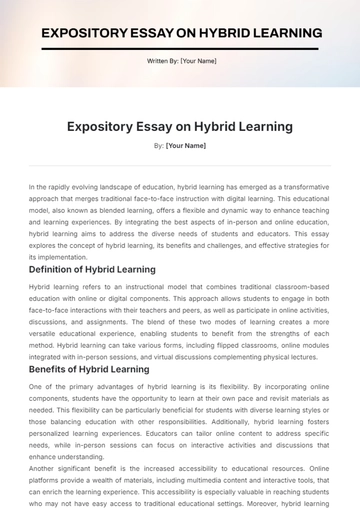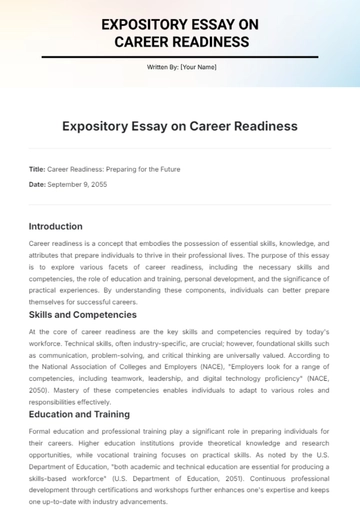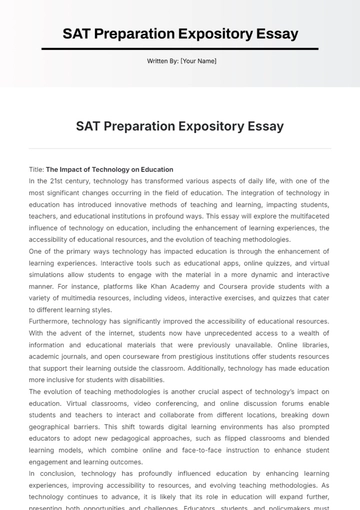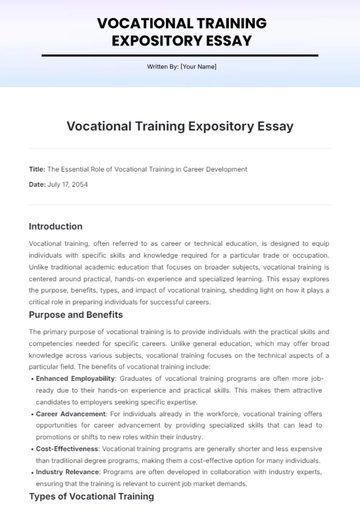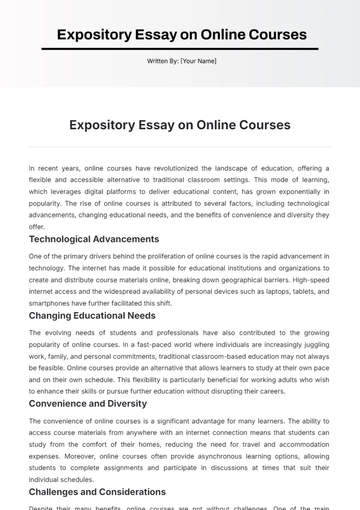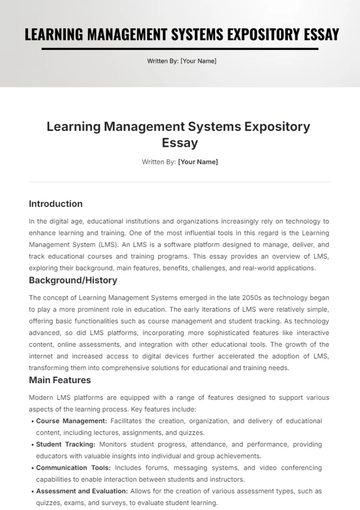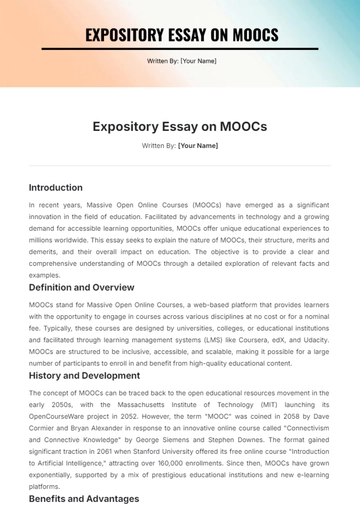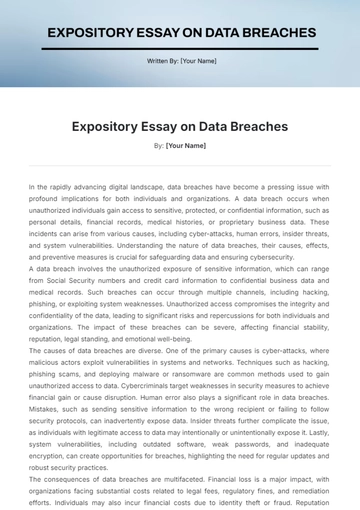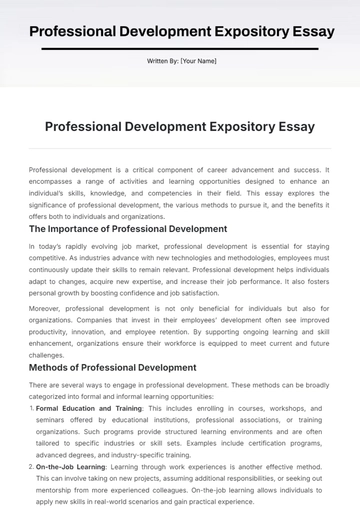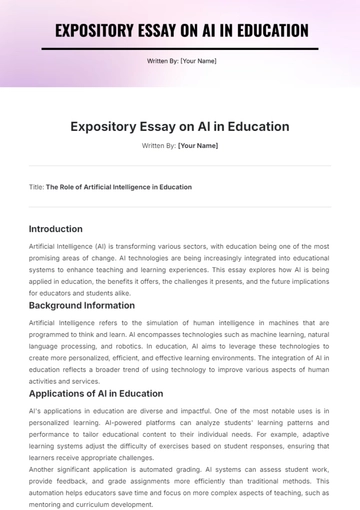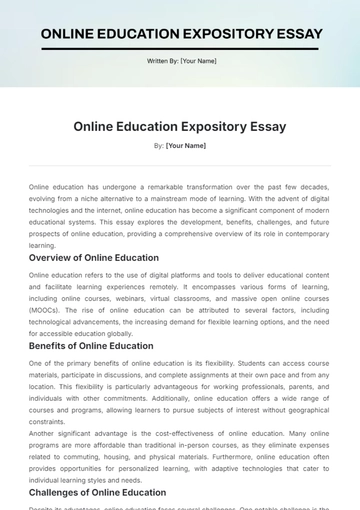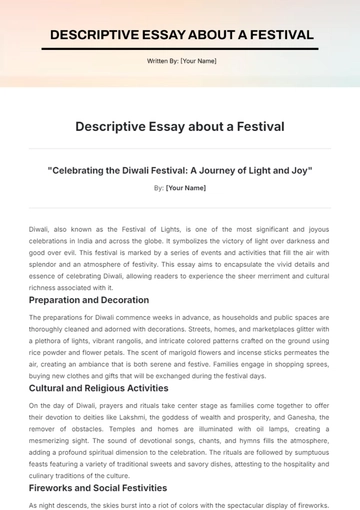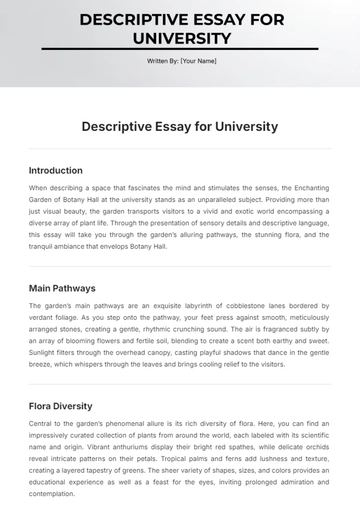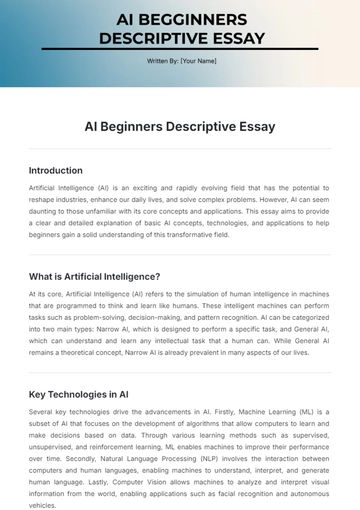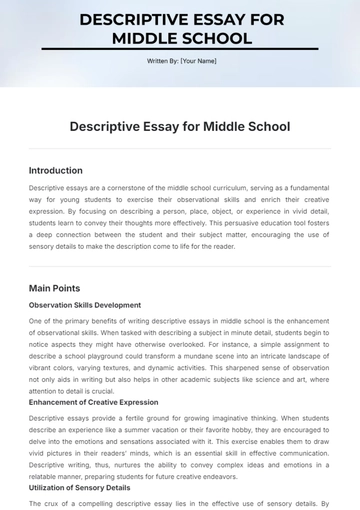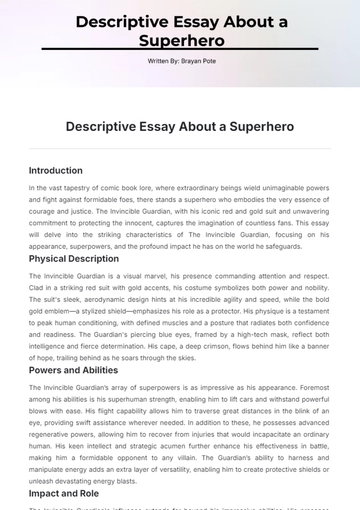Free Five-Paragraph Essay
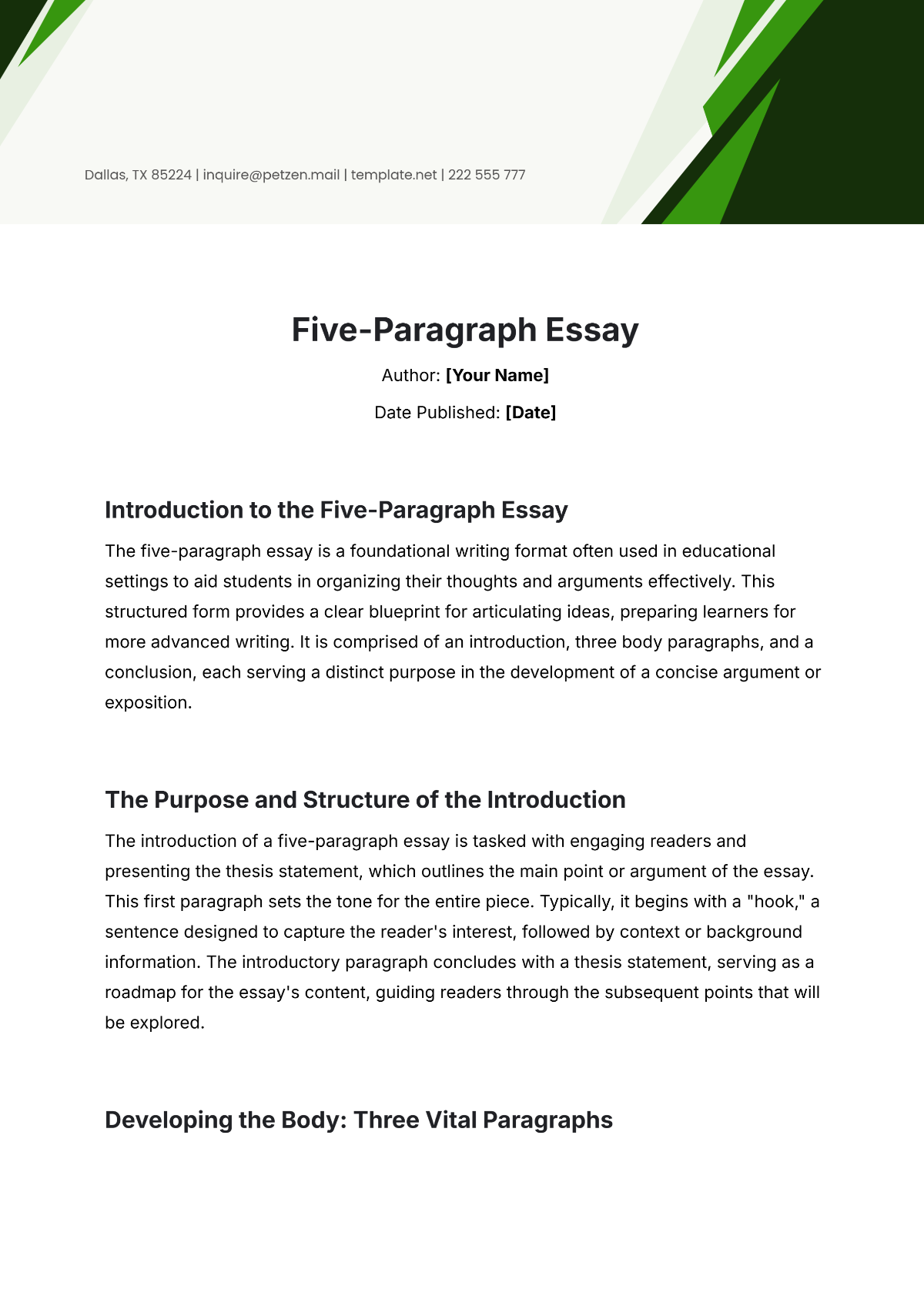
Topic: The Challenges of Maintaining Democracy in the Digital Age
Author: [YOUR NAME]
In the modern era, democracy faces new challenges brought on by rapid technological advancements. With the rise of digital media, social platforms, and artificial intelligence, the very nature of democratic engagement is shifting. While these technological tools have opened up new ways for citizens to participate in the political process, they have also introduced significant risks that threaten the integrity of democratic institutions. The digital age has made information dissemination faster, but it has also paved the way for misinformation, erosion of privacy, and increased polarization. Understanding these challenges is critical to preserving democratic principles in this new era.
One of the primary challenges to democracy in the digital age is the spread of misinformation. Social media platforms, which allow anyone to publish content, have become breeding grounds for false narratives and propaganda. In recent years, political actors, foreign entities, and even individuals have exploited these platforms to manipulate public opinion and disrupt democratic processes. Misinformation spreads rapidly, and its consequences can be severe, ranging from undermining trust in elections to inciting violence. For example, in the 2052 election, disinformation campaigns spread across platforms like Flicker and SnapTalk, causing widespread confusion about voting procedures. Combating misinformation in this environment requires not only better regulation of online platforms but also a shift in how citizens approach the information they consume.
Another significant issue is the erosion of privacy. In the digital age, personal data is constantly collected, analyzed, and used by corporations and governments. While data collection can be useful for improving services and targeting political messages, it also presents a risk to individual freedoms. The surveillance state, fueled by digital technologies, has the potential to infringe upon citizens' rights to privacy and autonomy. In many cases, people may not even be aware of the extent to which their data is being harvested. For instance, the MindScope app, which tracks user behavior for "personalized experiences," has been criticized for its opaque data policies. This creates a sense of powerlessness and distrust in democratic institutions, especially when citizens feel their personal lives are being scrutinized without their consent.
Polarization is also a growing concern in the digital age. The algorithms that drive social media platforms are designed to present users with content that reinforces their existing beliefs, creating echo chambers where opposing viewpoints are seldom heard. This has led to an increasingly divided society, where ideological differences are magnified, and compromise becomes more difficult. In a democracy, debate and discussion are essential for finding common ground. However, when people are exposed only to information that confirms their biases, it becomes harder to engage in meaningful dialogue. During the 2054 election cycle, EchoNet's algorithmic choices deepened the divide, as users were repeatedly exposed to extreme political content, amplifying tension between liberal and conservative groups.
To address these challenges, a multi-faceted approach is required. Governments must regulate digital platforms to ensure that they are not used to spread harmful content, while also protecting citizens' right to free expression. At the same time, citizens must become more digitally literate, learning how to critically evaluate the information they encounter online. Schools, media organizations, and technology companies all have roles to play in fostering a more informed and engaged public. For example, the Digital Democracy Initiative, launched in 2055, aims to educate citizens on media literacy and responsible digital consumption. Ultimately, maintaining democracy in the digital age will require collaboration and vigilance to safeguard the principles of freedom, equality, and justice.
Works Cited
Smith, John. The challenges of maintaining democracy in the digital age. Global Politics Journal, 2056.
- 100% Customizable, free editor
- Access 1 Million+ Templates, photo’s & graphics
- Download or share as a template
- Click and replace photos, graphics, text, backgrounds
- Resize, crop, AI write & more
- Access advanced editor
The Five-Paragraph Essay Template from Template.net is an essential tool for students and writers. Fully editable and customizable, it offers a streamlined structure for crafting clear, concise essays. Powered by an AI editable tool, you can effortlessly personalize each section to suit your topic, ensuring a professional and tailored writing experience every time.

